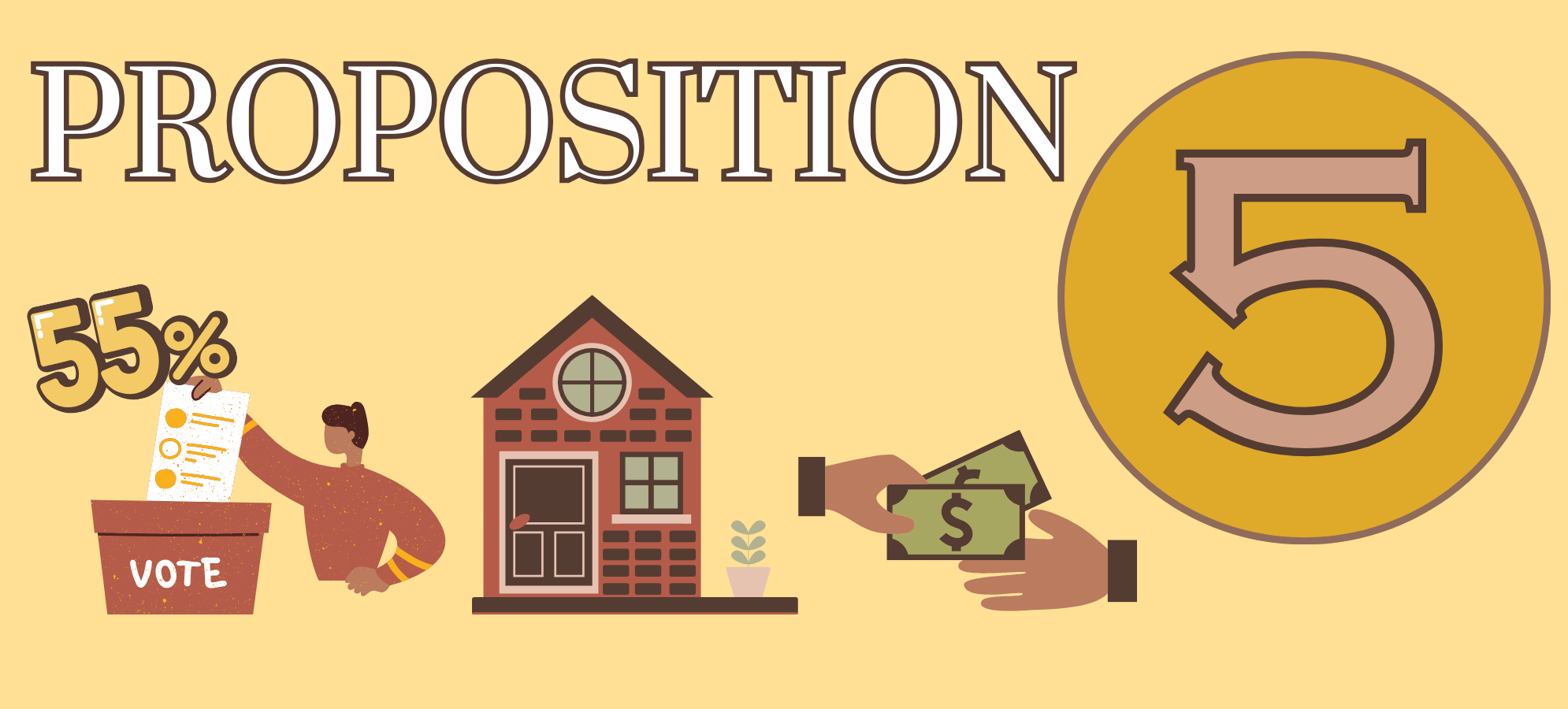Proposition 5 on the Nov. 5 general election ballot would reduce the voter threshold for passing local infrastructure bonds from two-thirds to 55%.
The proposition aims to make it easier for local governments to fund low-income housing and general infrastructure projects by raising property taxes in their respective areas.
Local property tax increases would depend on decisions by local governments and voters as described on the Secretary of State’s website.
A provision in Proposition 5 would ban local governments from using money to buy single-family homes and duplexes and converting them into apartment units, this was a change to the previous proposal of the proposition to persuade the California Association of Realtors, who provided $19 million in funding against the proposition prior to the change.
The proposition will also require all local bonds to be used only in their respective areas and only for the benefit of the cities and counties from which they come.
Supporters of the proposition emphasize the need for low-income and affordable housing and transitioning the fiscal burden from the state level to the local level. Shifting to the local level allows for a much more community-focused environment that grants constituents the ability to vote on building infrastructure that suits their specific needs.
The California Professional Firefighters, an organization that represents over 35,000 firefighters in political and legislative environments, supports the measure. In an email to The Oak Leaf, a representative wrote, “California’s laws and processes to finance critical public infrastructure like fire stations, emergency response vehicles, and firefighting equipment are tremendously outdated. CPF has been leading the effort to provide cities and counties the tools they need to make the investments that are needed to keep the public safe.”
Opponents of the proposition argue that raising property taxes will financially impact taxpayers and renters, a 55% threshold may force a larger population to pay an unwanted tax, and that “infrastructure” is too broadly defined.
The California Taxpayers Association opposes Proposition 5. CalTax, which represents both big and small businesses in California, promotes what it considers solid tax policies and government efficiency.
“Yes – it will lead to higher rental prices,” said Peter Blocker, the Vice President of Policy at CalTax. The tax increase on California property owners could reach thousands of dollars; in response to the large tax increase, landlords may ease their newfound financial burdens by imposing higher rent rates on tenants.
When asked if there are any under-represented points in the media, CalTax said, “Local governments, under the existing two-thirds vote threshold, do not face an insurmountable problem passing general obligation bonds. From 2012 to 2022, cities, counties, and special districts placed 75 general obligation bonds on the ballot. Voters approved 56 percent of these bonds, representing $15 billion in new taxes on property owners.”
A “yes” vote on this proposition would lower the voting threshold for local borrowing to fund low-income housing and public infrastructure from two-thirds to 55%.
Voting “no” on the proposition would maintain the requirement for a two-thirds approval for local borrowing to build infrastructure.

